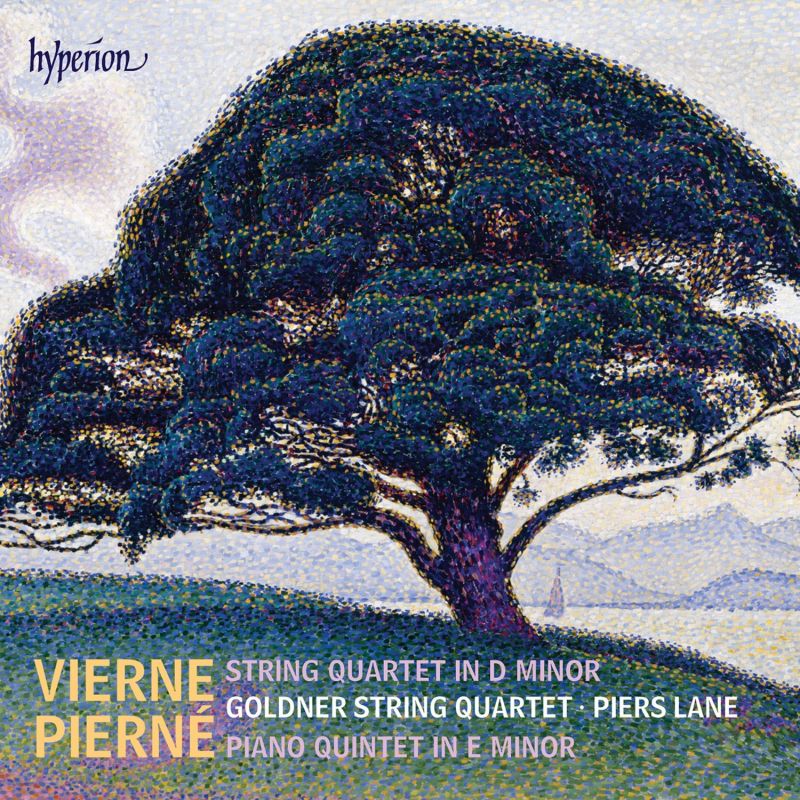PIERNÉ Piano Quintet VIERNE String Quartet
View record and artist detailsRecord and Artist Details
Composer or Director: Louis Vierne, (Henri Constant) Gabriel Pierné
Genre:
Chamber
Label: Hyperion
Magazine Review Date: 05/2014
Media Format: CD or Download
Media Runtime: 63
Mastering:
DDD
Catalogue Number: CDA68036

Tracks:
| Composition | Artist Credit |
|---|---|
| Quintet for Piano and Strings |
(Henri Constant) Gabriel Pierné, Composer
(Henri Constant) Gabriel Pierné, Composer Goldner Quartet Piers Lane, Piano |
| String Quartet |
Louis Vierne, Composer
Goldner Quartet Louis Vierne, Composer |
Author: Harriet Smith
It’s a large-scale affair, of some 40 minutes, and it was written later than it sounds, in 1916. If Pierné the composer was rather overshadowed by his career as a conductor during his own lifetime, then we have no such excuse these days. As a former pupil of Massenet and Franck, his ability to handle large-scale structures is a given (and the quintet makes use of Franckian cyclic elements to give it coherence). The first movement opens in high seriousness, with an almost symphonic sense of scale. The danger inherent to this medium is that textures can become cloudy and clogged. Not here, though, where Pierné creates some markedly effulgent effects but never becomes overbearing. In the hands of these players the second movement, which uses the Basque form of a zortzico, characterised by five beats in a bar, has an appealing lilt. And they also judge expertly the slow introduction to the finale, while the Allegro proper has litheness, warmth and a constantly engaging sense of musical argument that prompts the question: why isn’t this much more frequently played?
The Goldner couple it with the D minor Quartet of Louis Vierne, written when he was just 24, in the same year – 1894 – that Debussy changed the musical landscape with his Prélude à L’après-midi d’un faune. The quartet’s neglect might be in part due to Vierne’s overwhelming association with the organ but matters haven’t been helped by the fact that the score wasn’t published until the 1980s. What is striking is how attuned to the medium he is, and the work is full of wonderfully effective writing. The inner movements are particularly impressive: a febrile Intermezzo (airily despatched here) and an austerely beautiful slow movement. With expert notes from Roger Nichols, this is a fascinating and eminently worthwhile addition to the catalogue.
Discover the world's largest classical music catalogue with Presto Music.

Gramophone Digital Club
- Digital Edition
- Digital Archive
- Reviews Database
- Full website access
From £8.75 / month
Subscribe
Gramophone Full Club
- Print Edition
- Digital Edition
- Digital Archive
- Reviews Database
- Full website access
From £11.00 / month
Subscribe
If you are a library, university or other organisation that would be interested in an institutional subscription to Gramophone please click here for further information.




